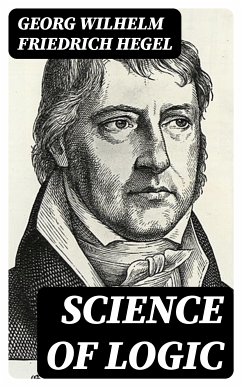Georg Wilhelm Friedrich Hegel's "Science of Logic" is a profound exploration of the nature and development of logic as a dialectical process. Written in the early 19th century, the text reflects Hegel's philosophical project to reconcile ideas of contradiction and unity, where he meticulously dissects traditional logical structures. Employing a dense, yet methodical style, Hegel transforms logic from a mere tool for scientific inquiry into an organic system that captures the dynamic and evolving nature of reality itself. Notably, the work offers a systematic account of concepts such as being, essence, and notion, thus situating itself within the broader context of German Idealism. Hegel, a pivotal figure in Western philosophy, was deeply influenced by the tumultuous socio-political landscape of his time, particularly the aftermath of the French Revolution. His engagement with metaphysics and epistemology paved the way for this foundational work, as Hegel sought to articulate a comprehensive framework that accounted for human thought and its evolution in the face of historical development. His intellectual environment, steeped in Enlightenment ideals yet marked by emerging contradictions, directly shaped the themes present in "Science of Logic." This seminal work is recommended for readers keen on understanding the intricacies of Hegelian thought and its enduring impact on contemporary philosophy. With its ambitious scope and innovative treatment of logic, "Science of Logic" challenges readers to reconsider the relationship between thought and reality, making it an essential read for students of philosophy, logic, and even the social sciences.
Dieser Download kann aus rechtlichen Gründen nur mit Rechnungsadresse in A, B, BG, CY, CZ, D, DK, EW, E, FIN, F, GR, H, IRL, I, LT, L, LR, M, NL, PL, P, R, S, SLO, SK ausgeliefert werden.









